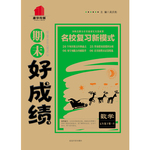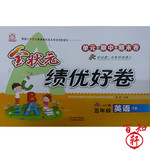
 期末好成绩系列答案
期末好成绩系列答案 99加1领先期末特训卷系列答案
99加1领先期末特训卷系列答案 百强名校期末冲刺100分系列答案
百强名校期末冲刺100分系列答案 好成绩1加1期末冲刺100分系列答案
好成绩1加1期末冲刺100分系列答案 金状元绩优好卷系列答案
金状元绩优好卷系列答案科目:高中英语 来源:湖南省2010届高三下学期五月模拟考试英语试卷 题型:填空题
SECTION B(10 points)
Directions: Read the following passage. Answer the questions according to the information given in the passage and required words limit. Write your answers on your answer sheet.
He could have been president of Israel or played the violin at Carnegie Hall, but he was too busy thinking. His thinking on God, love and the meaning of life grace our greeting cards and day-timers.
Fifty years after his death, his shock of white hair and hanging mustache still symbolize genius. Einstein remains the foremost scientist of the modern time. Looking back 2,400 years, only Newton, Galileo and Aristotle were his equals.
Around the world, universities and academies are celebrating the 100th anniversary of Einstein's "miracle year" when he published five scientific papers in 1905 that basically changed our grasp of space, time, light and matter. Only he could top himself about a decade later with his theory of relativity.
Born in the age of horse-drawn carriages, his ideas launched a technological revolution that has made more change in a century than in the previous two thousand years. Computers, satellites, telecommunication, lasers, television and nuclear power all owe their invention to ways in which Einstein exposed a stranger and more complicated reality underneath the world.
He escaped Hitler's Germany and devoted the rest of his life to human rights and peace with an authority unmatched by any scientist today, or even most politicians and religious leaders. He spoke out against fascism and racial prejudice. His FBI file ran 1,400 pages.
His letters expose a disorderly personal life -- married twice and indifferent toward his children while absorbed in physics. Yet he charmed lovers and admirers with poetry and sailboat outings. Friends and neighbors fiercely protected his privacy.
81.What is the passage about?(no more than 5 words)
______________________________________________________________________________
82.What gifts does the first paragraph imply that Einstein have?(no more that 10 words)
______________________________________________________________________________
83.Why was 1905 called Einstein’s “miracle year”?(no more than 15 words)
______________________________________________________________________________
84.How do you describe Einstein when he was not buried himself in his research?(no more that 15 words)
______________________________________________________________________________
查看答案和解析>>
科目:高中英语 来源:河南省2009-2010学年高二下学期阶段测试英语试题(二) 题型:阅读理解
When someone says , “Well , I guess I’ll have to go to face the music,” It doesn’t mean he is planning to go to a concert . It is something far less pleasant , like being called in by your boss to explain why you did this or that , and why you did not do this or that . Sour (刺耳)music , indeed , but it has to be faced .
The phrase “to face the music” is familiar to every American , young and old . It is at least 100 years old . Where did the expression come from ?
The first information comes from the American writer James Fenimore Cooper . He said—in 1851—that the expression was first used by actors while waiting in the wings (侧)to go on stage . After they got their clue(暗示)to go on , they often said , “It’s time to go to face the music.” And that is exactly what they did —face the orchestra(管弦乐队)which was just below the stage .
An actor might be frightened or nervous as he moved on to the stage in front of the audience that might be friendly or perhaps unfriendly , especially if he forgot his lines. But he had to go out .
So, “to face the music” came to mean : having to go through something , no matter how unpleasant the experience might be , because you knew you had no choice .
The other explanation comes from the army . Men had to face inspection(检阅)by their leader . The soldiers worried about how well they looked . Was their equipment clean—shiny enough to pass inspection ? Still , the men had to go out , and face the music of the band , as well as the inspection . What else could they do ?
1.The phrase “to face the music” was first used by______________.
A.all the Americans
B.the American writer James Fenimore Cooper
C.American actors
D.the American orchestra
2.An actor might feel frightened or nervous when going on stage .One of the reasons is that ______________.
A.his performance might not satisfy most of the audience
B.he might not remember what he should say on stage
C.he had to face the unfriendly audience
D.the audience might be mostly his friends
3. “To face the music” is also used to mean that soldiers were not willing______________.
A.to be examined about their equipment
B.to be found weak
C.to show themselves by their leader
D.to be inspected by their leader
4.This passage is mainly about______________.
A.the meaning of the phrase “to face the music”
B.how to deal with something unpleasant
C.the origin(起源)of the phrase
D.how to go through difficulty
查看答案和解析>>
科目:高中英语 来源:河南省2009-2010学年高一下学期5月月考英语试题 题型:完形填空
二. 完形填空(30分)
I will never forget one thing, mainly because I learned the meaning of kindness then.
A few years ago, I went running on a 16 day. It was my favorite activity because the 17 were so clean when it rained. 18 , I saw an old man with 19 clothes picking cans out of a rubbish bin. When I ran past him, I didn’t know 20 I should give him my umbrella. As I was thinking, I was still 21 . But I finally decided to give him my umbrella, as I knew he needed the umbrella much more than I needed it, 22 I ran back, gave him the umbrella and said, “You 23 this more than I do.” To my 24 , he took it with a big smile on his face and repeated, “Thank you! Thank you! God bless you.” I hadn’t expected he would 25 it so much. I walked away feeling 26 . I turned back one last minute and 27 him still smiling. “It was just an umbrella,” I thought, not 28 that it was the 29 that made him happy. He might feel that he wasn’t 30 in the world.
A few weeks later, when I was running on the same street on a bright sunny day, I 31 the same man who was in the same clothes sitting down resting. The only 32 was my umbrella right beside him, looking like he 33 it. It was very clean and neatly placed. At that moment, I realized it didn’t 34 that I couldn’t give him a house or a job. I only did what I was able to and it made a whole lot of 35 seem to go away.
16. A. snowy B. sunny C. cloudy D. rainy
17. A. parks B. paths C. streets D. gyms
18. A. Hopefully B. Unfortunately C. Surprisingly D. Suddenly
19. A. nice B. wet C. funny D. clean
20. A. whether B. when C. why D. how
21. A. smiling B. looking C. running D. walking
22. A. for B. when C. since D. so
23. A. care B. need C. enjoy D. like
24. A. excitement B. disappointment C. joy D. surprise
25. A. favor B. love C. appreciate D. admire
26. A. high B. good C. scared D. amused
27. A. saw B. heard C. imagined D. sensed
28. A. expecting B. watching C. realizing D. feeling
29. A. trust B. confidence C. respect D. kindness
30. A. small B. alone C. bothered D. useless
31. A. cared about B. called on C. passed by D.looked after
32. A. achievement B. sign C. choice D. difference
33. A. valued B. remembered C. honored D. washed
34.A change B. occur C. hurt D. matter
35.A.sadness B. suffering C. rudeness D. feeling
查看答案和解析>>
科目:高中英语 来源:天津市2010届高考考前热身测试英语试卷 题型:单项填空
—Some English idioms are difficult to understand.
—Exactly, ________ you know the meaning of each word.
|
A.if only |
B.even if |
C.as if |
D.now that |
查看答案和解析>>
科目:高中英语 来源:2011-2012学年广西桂林中学高三7月月考英语题 题型:阅读理解
Most people know that a wedding ring is symbolic of the bond(连结物) of love and commitment(承诺) between two people. But not everyone knows about the history behind this small yet powerful symbol. The history of the wedding ring goes back not just hundreds but thousands of years. No other currently practiced wedding tradition has been around as long.
The Egyptians were the first recorded civilization to use the wedding ring. In Egyptian hieroglyphics(象形文字) a circle represented eternity. Once a woman accepted the ring she became the “property” of the person who gave it to her and she was in a sense “his.” The first wedding ring could have been made of braided grass or hay (which would have been changed often), ivory, bone, or leather. Eventually, metal was used, but the first wedding bands were crude(未加工的) and rough. However, the sentiment(情感) remained the same-eternal commitment and love.
The Egyptians wore the wedding ring on the left hand because it was believed that a vein(静脉) in the left hand went straight to the heart. This tradition is still commonly practiced today in most parts of the world largely for practical purposes (most people are right handed.)It is worn on the fourth finger of the left hand. But there are some countries and groups which do not follow this tradition. In the Jewish faith, the wedding ring is put on the index finger. Roman Catholics traditionally wore their wedding band on the right hand, and in many countries and regions in Europe some people still follow this tradition.
It is interesting to note that in the long history of the wedding ring that it is only in the last century that men have begun to wear them. However, now both men and women show their love and commitment by exchanging rings on their wedding day.
Once you begin shopping for rings you may be amazed by the choices that await you. There are several different types of metals: traditional gold, white gold, platinum, and titanium. You can have an inscription(刻字) put on the inside of the band(镶边) if you like. Some people are even choosing a tattoo(刺花) band. The styles vary from a simple, yet elegant(优雅的) band to an elaborate(精致的) ring covered with jewels. If you do not buy the wedding and engagement rings as a set you will want to be sure the styles are compatible(一致的). Choose carefully because this choice will need to stand the test of eternity.
1.What would be the best title for this passage?
A. History of rings B. Interesting facts about rings
C. Different beliefs about rings D. The meaning of the rings.
2.What may the word “eternity” in paragraph 2 probably mean?
A. Elegance B. Marriage C. Wedding D. Foreverness
3.Which is NOT true according to the passage?
A. The meaning of the rings remained unchanged.
B. One should be careful of choosing a ring in a shop from different kinds.
C. Jewish are so faithful to their beliefs to wear rings on the fourth finger.
D. Now most people in the world still follow Roman Catholics traditionally.
4.What can we infer from the passage?
A. Men were looked upon by women for thousands years.
B. Only women have the right to make themselves beautiful.
C. women wore rings thousands of years earlier than men.
D. You can have an inscription put on the inside the band.
查看答案和解析>>
湖北省互联网违法和不良信息举报平台 | 网上有害信息举报专区 | 电信诈骗举报专区 | 涉历史虚无主义有害信息举报专区 | 涉企侵权举报专区
违法和不良信息举报电话:027-86699610 举报邮箱:58377363@163.com